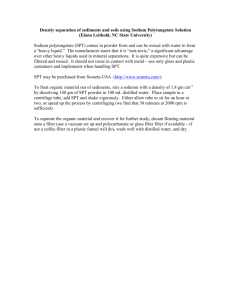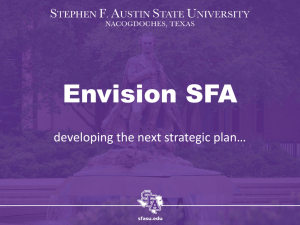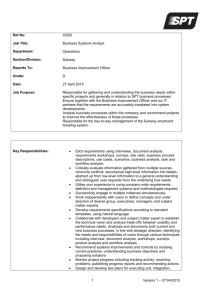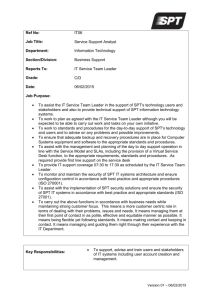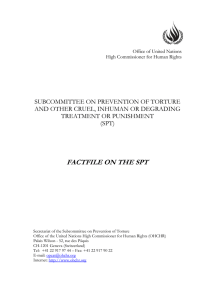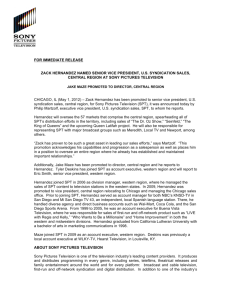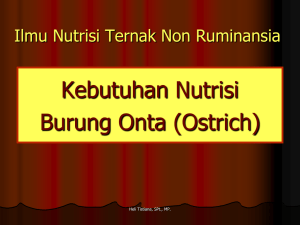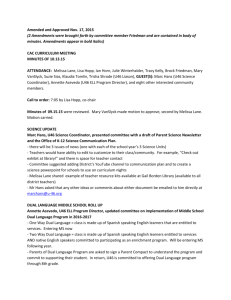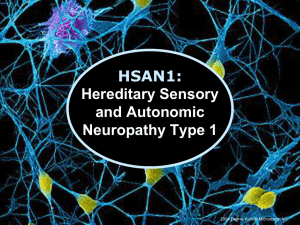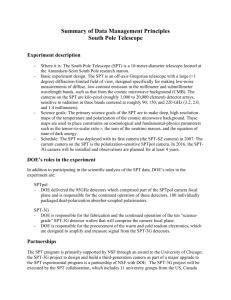Systems Processes Theory & Systems Pathology Dr. Len Troncale
advertisement
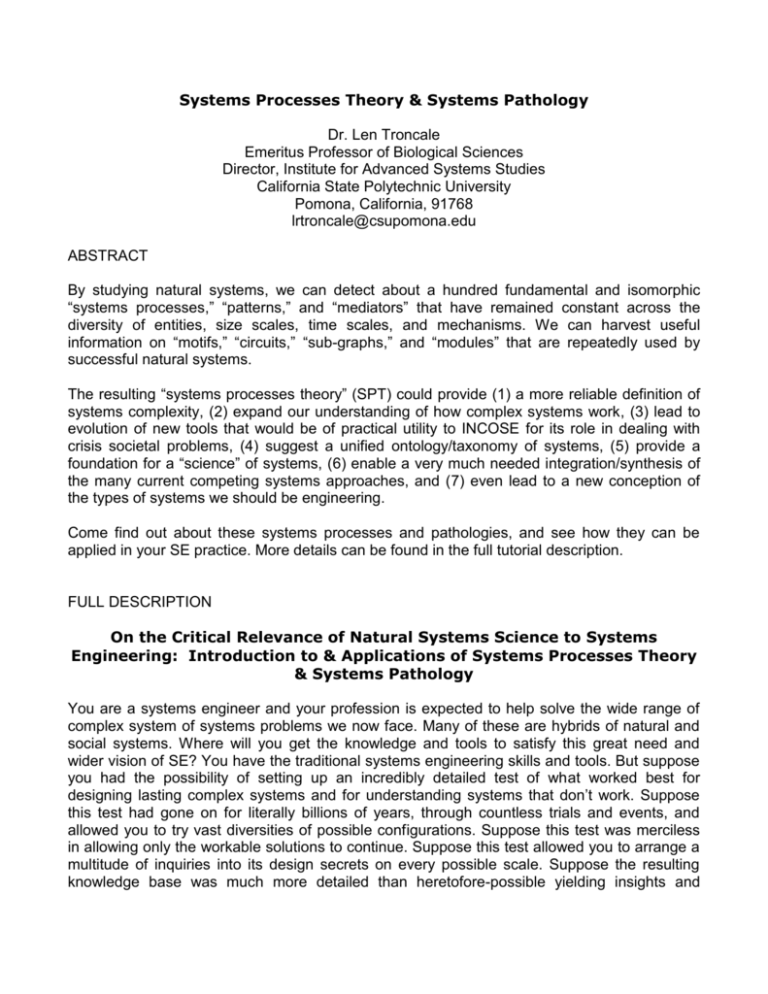
Systems Processes Theory & Systems Pathology Dr. Len Troncale Emeritus Professor of Biological Sciences Director, Institute for Advanced Systems Studies California State Polytechnic University Pomona, California, 91768 lrtroncale@csupomona.edu ABSTRACT By studying natural systems, we can detect about a hundred fundamental and isomorphic “systems processes,” “patterns,” and “mediators” that have remained constant across the diversity of entities, size scales, time scales, and mechanisms. We can harvest useful information on “motifs,” “circuits,” “sub-graphs,” and “modules” that are repeatedly used by successful natural systems. The resulting “systems processes theory” (SPT) could provide (1) a more reliable definition of systems complexity, (2) expand our understanding of how complex systems work, (3) lead to evolution of new tools that would be of practical utility to INCOSE for its role in dealing with crisis societal problems, (4) suggest a unified ontology/taxonomy of systems, (5) provide a foundation for a “science” of systems, (6) enable a very much needed integration/synthesis of the many current competing systems approaches, and (7) even lead to a new conception of the types of systems we should be engineering. Come find out about these systems processes and pathologies, and see how they can be applied in your SE practice. More details can be found in the full tutorial description. FULL DESCRIPTION On the Critical Relevance of Natural Systems Science to Systems Engineering: Introduction to & Applications of Systems Processes Theory & Systems Pathology You are a systems engineer and your profession is expected to help solve the wide range of complex system of systems problems we now face. Many of these are hybrids of natural and social systems. Where will you get the knowledge and tools to satisfy this great need and wider vision of SE? You have the traditional systems engineering skills and tools. But suppose you had the possibility of setting up an incredibly detailed test of what worked best for designing lasting complex systems and for understanding systems that don’t work. Suppose this test had gone on for literally billions of years, through countless trials and events, and allowed you to try vast diversities of possible configurations. Suppose this test was merciless in allowing only the workable solutions to continue. Suppose this test allowed you to arrange a multitude of inquiries into its design secrets on every possible scale. Suppose the resulting knowledge base was much more detailed than heretofore-possible yielding insights and guidelines for better design and curation of systems. Sound like a systems’ engineer’s ideal dream? It isn’t. It is real. Natural physical, astronomical, chemical, geological, and biological phenomena constitute a real test bed for understanding how complex systems work. Proven advantages of biomimicry to engineering pale by comparison with the anticipated advantages of systems mimicry. By comparing numerous case studies across diverse natural systems as they have been studied by their respective sciences for hundreds of years, but at the systems-level, we can detect a hundred fundamental and isomorphic “systems processes,” “patterns,” and “mediators” that have remained constant across all that diversity of entities, across all those different size scales, across all those unique origin times and mechanisms. Further, we can employ data and results from a multitude of rigorous published experiments to discover and explicitly describe how these hundred systems processes influence each other (Linkage Propositions) rendering the resulting theory truly a system of systems mechanisms. The consistency of the processes, patterns, pathologies and their linkage interactions argues for their importance and their efficacy. Perhaps even more significantly, we can harvest useful information on “motifs,” “circuits,” “sub-graphs,” and “modules“ that are repeatedly used by successful natural systems. The resulting “systems processes theory” (SPT) might provide (i) a more reliable definition of systems complexity, (ii) expand our understanding of how complex systems work, (iii) lead to evolution of new tools that would be of practical utility to INCOSE for its role in dealing with crisis societal problems, (iv) suggest a unified ontology/taxonomy of systems, (v) provide a foundation for a “science” of systems, (vi) enable a very much needed integration/synthesis of the many current competing systems approaches, and (vii) even lead to a new conception of the types of systems we should be engineering. This day-long tutorial will consist of concentrated half-hour segments, each followed by a ten minute discussion session so participants can express initial reactions. We will explore the following topics: (some will be condensed into one 40-min segment) (1) Evidence of weakness of knowledge of systems science in systems engineering; (2) Synthesis of the fragmented theories of 5 generations of systems knowledge; (3) Stark differences between systems thinking and systems science; (4) Definition, limits, proof of the concept of isomorphy for SE; case studies (5) Power of comparative analysis and the experiments of the natural sciences; (6) Dawn of an evidence-based science of systems for systems engineering; (7) Definition of Systems Processes, patterns, mediators; How to recognize SPs; (8) Definition of Linkage Propositions in SPT and examples; How to discover (9) Introducing the new field of Systems Pathology and what it might offer SE; (10) Details of select systems processes as indication of depth of knowledge base; (11) Five ongoing attempts to model SPT using modeling tools known to SEs; (12) Introducing the new specialties of Systems Mimicry and SysInformatics; (13) Types of non-linear causality and their effect on design and performance; (14) Application of SPT to praxis SE corporations; two case studies (15) Application of SPT to education of SEs, SSs, and for STEM; MOOCs Beyond the introductory material typical of past INCOSE Webinars, this presentation will cover the details of a select sample of SPT candidate isomorphies (#10 above). More than presenting only the “research framework” for SPT as in past workshops, this one will compare the details of their identifying features and functions, their interactions with each other, and their common pathologies as more in-depth case studies of how systems form, work, maintain themselves, and decay into dysfunction. For the clever practitioner, such knowledge could be a treasure of raw material for generation of better designs, products, and diagnosis/avoidance of errors. In the time provided, we hope to cover at least a dozen as proof of concept. Participants who make a specific commitment to work on just one aspect of this project will receive a Collaborator’s Package. It will include lists and taxonomies of isomorphies, linkage propositions, and systems pathologies that will be used in core courses for Systems Engineering at our university and in future GSRDC workshops, as well as by crowd-sourcing research teams planned for the future. Come and challenge your worldview; humanities world view. BIOGRAPHY Dr. Len Troncale is Professor Emeritus of Cell and Molecular Biology, and past Chair of the Biological Sciences Department at California State Polytechnic University (CPP/Cal Poly). He is also Past Founding Director of the Institute for Advanced Systems Studies, and Coordinator of its NSF-supported Systems-Integrated-Science General Education (ISGE) Program at CPP. He served as VP and Managing Director of the International Society for General Systems Research (SGSR) for six years, and President of the International Society for the Systems Sciences (ISSS) for the three-year cycle. He has served as Visiting Professor at the University of Vienna, Austria, CSU Monterey Bay, and CSU Sonoma and as Research Associate at IIASA Austria (the International Institute for Applied Systems Analysis). He was a member of the Board of Directors of IFSR (International Federation for Systems Research) for several years and still serves on the Board of Trustees for ISSS. He is on the editorial board of several systems publications, for example, Systems Research and Behavioral Science. Currently he has been presenting talks, research papers, posters, and webinars for INCOSE (the International Council on Systems Engineering) and at Systems Biology conferences and serves as Lead for two official projects of the Systems Science Working Group of INCOSE. Most recently, he has been named Lecturer for the new Master’s in Systems Engineering of the College of Engineering at Cal Poly teaching the new core course Introduction to Natural Systems Science for systems engineers. Dr. Troncale has published over 137 research articles, abstracts, editorials and reports, 33 conference posters, served as Editor on 11 projects, delivered 125 invited and computerized presentations and demonstrations in 23 countries and served as P.I. on 52 grants and contracts for $5.3M from a variety of federal, state, and private organizations such as the NSF, DOE, ONR, HUD, the HHMI and the Keck Foundation, as well as the CSU System. A history of his contributions may be viewed at lentroncale.com, Wikipedia, and five other linked website/blogs.
